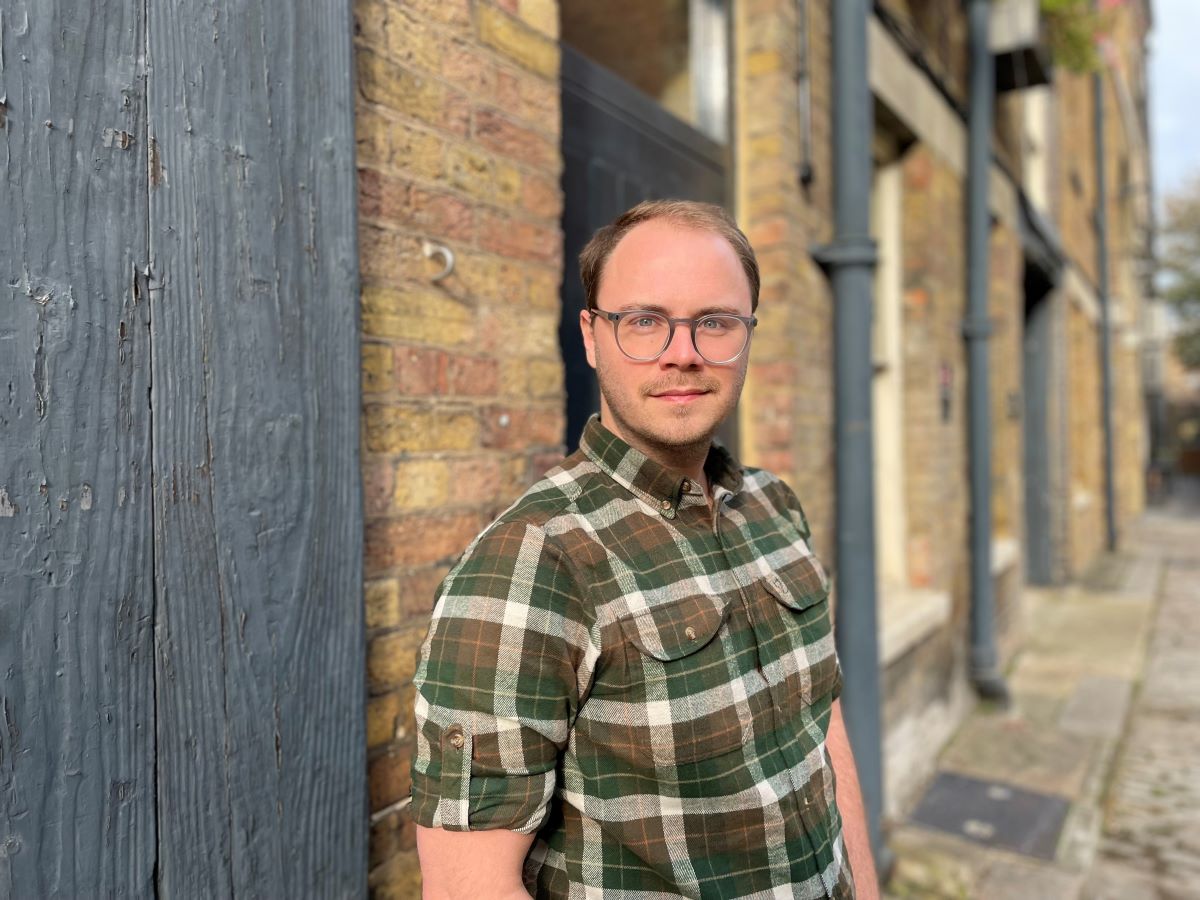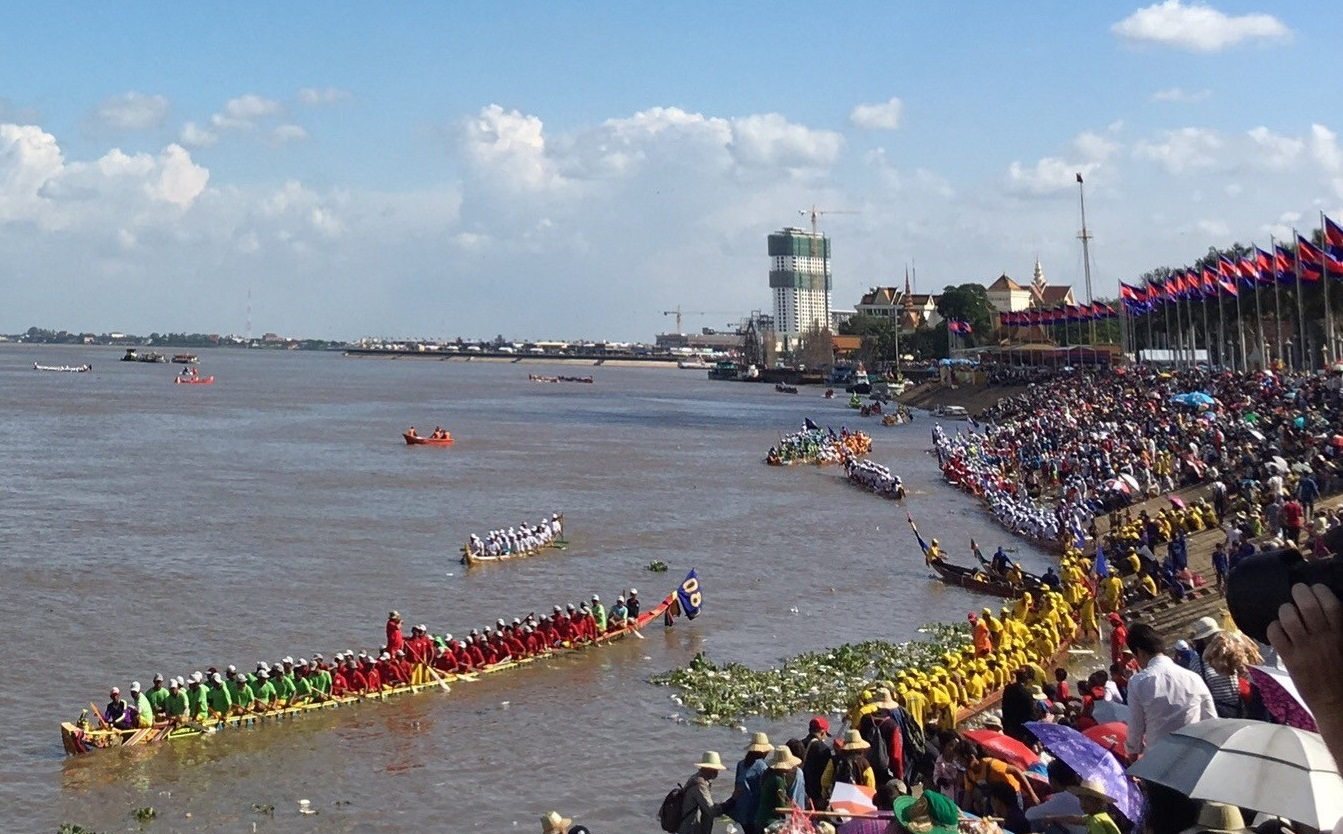James Havey is an anti-human trafficking researcher and ethical procurement programme manager with research specialising in Southeast Asian survivor aftercare. Based in Cambodia from 2013 – 2020, he worked on world’s first ten-year longitudinal study of trafficking survivors
James is the recipient of our Kent MBA Leaders in Sustainability Scholarship. Here, to mark the World Day against Trafficking in Persons (30 July) we caught up with James to find out more.
‘In Cambodia, the police would come through the parks at night and round up all the sex workers. Police violence was prevalent and marginalised groups – the transgender community in particular – suffered the worst,’ explains James.
Without the infrastructure to support those in abject poverty, development workers like James were an essential lifeline for those struggling in the shadows of commonplace trafficking and modern slavery.
His team of researchers at the Chab Dai Coalition followed 128 adult and child survivors of sex trafficking – facilitating changes in aftercare methods through survivor-voiced recommendations.
‘For these survivors, the interviews our team carried out offered a safe space to tell us their stories. Many found it beneficial to their emotional health.
‘There were high levels of trust fostered over the course of the longitudinal study. Survivors, particularly males, often feel emotionally isolated and very few had felt supported or validated.’
The case studies interviewed for the report are a difficult read. Shelters set up as ‘safe spaces’ to escape trafficking often turned into violent places with older boys carrying out attacks on younger children.
The mental health of those who had been trafficked into sexual exploitation was found to be one of the most challenging areas to overcome. But, even when survivors returned to their families, the trauma didn’t end.
‘Those who entered shelters were labelled within the community even after they had escaped exploitation. They were judged as promiscuous, even though they were victims. In essence they were ostracised. Children were also cut off from families while in the shelter, which added to the anxiety when they returned.
‘Layering the isolation of a trafficking experience with the removal of the survivor from their community complicates a successful reintegration and has often resulted in perpetual reliance on social services offered by charities,’ highlights James.
James saw first hand that poverty had to play in all these issues.
‘Those who reintegrated into communities were now facing life with little socio-economic capital.
‘With social workers stretched due to caseloads, pressures for an economically stable survivor to provide upon reintegration are even more acute in a culture were ‘filial piety’ is expected, meaning, the survivor’s income provides for the multiple generations within the household.’
James and the team found that the ‘open and shut’ nature of child sex trafficking cases in the country compounded the problems each survivor faced.
Addressing their deep trauma often coincided with attempting to learn multiple new vocational skills, rather than systematically mapping out a survivor’s recovery journey in stages and with accredited vocational training partnerships.
‘Many of the survivors in our study have not been able to rise out of poverty, some even have fallen back into exploitative labour conditions or sex work.
‘In short, we were able to understand from listening to these survivors that sustained success relied on being offered vocational training from internationally accredited institutions while also being surrounded by emotionally supportive families and community members,’ he says.
The project ended in 2019 and the team’s findings has led to academic publications and dialogue with service provider leadership on aftercare social work policy and programming not only in Cambodia, but in countries around the world. Economic development in the region has also assisted ameliorating the pervasive effects of trafficking.
He continues: ‘The garment manufacturing industry was growing in the country and some factories started to pay higher wages, transforming the lives of poor families and their communities.’
‘Decent pay and working conditions are key to addressing issues like trafficking, and the West has a big part to play in this, as we customers and corporations alike are the buyers of these goods.”
This observation led James on a path to learn more about the private sector and to push for global change in the way organisations do business, with social impact at the centre.
Pursuant of this goal, he he is a Supplier Diversity Specialist at IHG Hotels & Resorts, charged with onboarding minority-owned businesses, small, local and/or social enterprises into IHG’s supply chain.
This not only drives competition and fosters innovation for the company, supplier diversification also levels the playing field for other entities to win work with IHG beyond large corporate suppliers.
Continuing to also volunteer as a consultant for Chab Dai, James is increasingly aware of new ways in which trafficking and modern slavery is impacting various countries, including the UK.
‘Here, trafficking and exploitation isn’t so obvious due to robust infrastructure and a largely attentive public sector, but it exists behind closed doors. From individuals with addiction becoming indebted to their dealers, to those who come to Britain for a better, safer, life and cross the border only to have their passports seized by their ‘coyotes’.
With climate change, we are going to see more of this as migrants escape intolerable environmental conditions and become increasingly vulnerable to trafficking.”
James was a successful applicant for the Kent MBA Leaders in Sustainability Scholarship and embarked on his MBA, part time in between working, in September 2021.
He says: ‘I took the MBA to bridge the gap between the Western private sector and my background in human rights. My mission is to address injustice within international labour forces by overlaying my current knowledge and experiences with technical business acumen through the Kent MBA.
‘Together with the growing fervour for businesses and their leaders to act more responsibly, I look forward to what the next few years will bring.’



